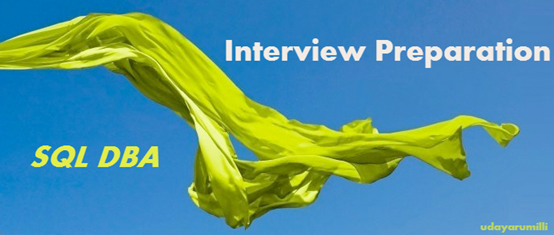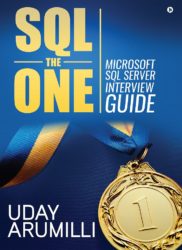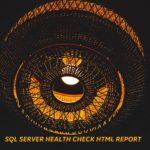Preparing for SQL DBA Interview

This article list out few tips on “Preparing for SQL DBA Interview” If you are reading this article which means you must be a Database Administrator/professional or getting ready for entering into DBA world. In today’s corporate world attending or taking a technical interview is mandatory whether it’s for a new role in current organization, new customer/client or for a new organization. Preparing for SQL DBA Interview is always a challenge. We have randomly chosen SQL Server database professionals from three different experience levels and had a deep discussion on “Preparing for SQL DBA Interview”.
- Fresher/Junior – Should know the basics of process and technology
- Mid-Level – Should be able to expertise in one or two areas and know the process
- Senior Level – Should be expertise in technology and able to drive the process
There are few points everyone should follow to get succeed in an interview. Below are the key points which can be helpful in “Preparing for SQL DBA Interview”
-
-
Profile
-
-
-
Preparation
-
-
-
Communication
-
-
-
Interview Process
-
-
Preparing a Topic
Profile
This is the first piece of information that tells about you so please be careful in preparing your profile:
- Don’t add the generic skill-set: Include only the topics that you are experienced or learned.
- Add your professional experience, key skills, education details, your achievements, certifications, training and projects.
- Number of pages should be restricted to 3 or 4.
- Maintain a profile on professional network like LinkedIn and add a link to your profile (I have seen a lot of opportunities are hitting through professional networks)
- Remember you should know / learn / prepare / experience each and everything you mentioned in your profile as the interview questions are always depends on summary points that you showcase in your profile.
Preparation
When you are not prepared for an interview you will not be going to make a WIN. Preparation makes you to feel more confident and plays the main role in your success. Prepare a self-reference guide with all your experiences, your tough times, difficult technical issues you faced, complex requirements and resolutions and your own interview experiences. Now we’ll see WHAT should be in our preparation list:
Top Questions:
Prepare top 10 questions in each category, let’s say you mentioned you are experienced in Performance Tuning, DBA daily activities, Replication and Clustering. You must be ready to answer top 10 questions from these categories. TOP 10 is different from person to person let’s say you are mostly handles SQL Server AlwaysOn Failover Cluster installations, person B might be expert in troubleshooting clustering issues and Person C mostly experienced in RCA and Performance Tuning in clusters. Based on your experience prepare your own list and see this is just a onetime activity and you can use the reference guide throughout your career.
Environment:
This is the most critical area where 80% failures in answering the questions. This is the primary area to test your experience, so prepare well. Environment includes different things that one can learn only through experience. We’ll see the common questions on environment:
Versions:
Remember the versions you worked on:
- Prepare at least few new features added in the latest version you worked in (Ex: 2012 when compared to 2008 R2).
- Have a look at new features added in latest SQL Server version. Ex: 2016
- You might be asked SQL Server components, try to remember few major components
Servers / Instances / Databases:
If you are experienced you must be confident in answering the question “How many total windows / SQL servers/Instances and Databases available in your previous work environment?”. Below we are giving an average values that we got from various professionals working in different organizations. It always depends on business Application requirement
Number of SQL Servers / Instances:
- Enterprise Big Environment: 100 to 800
- Mid-Level: 50 to 100
- Small: 10 to 60
Number of databases:
We always have an average figure as an answer for this question, because we can’t know the exact count as we maintain databases for different environments. For example an application can require 4 databases, then the same number of databases may require for DEVELOPMENT, TESTING, STAGING and in PRODUCTION. If any DR / HA is configured then those replicas should also be considered. Thereof we usually do not count the number of databases but yes we can see inventories for database details. Here are the average counts:
- Big Environments: 1000 to 4000
- Mid-Level Environments: 500 to 1000
- Small Environments: 100 to 500
Database Size:
- Big Enterprise:
- OLTP: 50 GB – 2 TB
- OLAP: 600 GB – 12 TB
- Mid-Level Enterprise:
- OLTP: 10 GB – 2 TB
- OLAP: 100 GB – 5 TB
- Small Environment:
- OLTP: 1 GB – 200 GB
- OLAP: 50 GB – 1 TB
Team Size:
- Enterprise Environments: 50 to 100
- Mid-Level: 5 to 20
- Low Level: 1 to 5
Hardware specs (CPU, Memory, and Storage):
CPU: Processors: Most of the servers use processor from AMD, DELL or Intel X series
Cores: It’s the most important thing as SQL Server licenses based on the number of cores. It’s starting from 4 and 16, 64 etc.
Memory:
Minimum: 4 GB (We still see in some small instances in DEV and QA)
Medium: 64 to 128 GB
Maximum: 512 GB+ (For a premium prod server)
Storage: SAN, SMB, NFS, iSCSI, EBS – if it’s AWS, Virtual Volumes – If it’s VMware etc.
Software & Tools:
- Make a note on third party tools you used in your environment ex: LITESPEED, REDGATE etc.
- Also make a note on how licensing happening for SQL Server in your environment
- Make a note on version number of names for ticketing and monitoring tools Ex: SCOM, TFS, and SVN etc.
Processes:
This is one of the most important key points. Processes related questions can be from:
- How request handling happening in your environment if you are working on ITIL
- Timeframe and other details on SPRINT / SCRUM if you are into agile
- Documenting process
- Inventory management
- Onsite Offshore communication
- How frequently you communicate with your client
- How an incident is handled
- What is bridge call?
- Escalation Matrix: How escalation happens in your environment etc.
- SLA: What is the Service Level Agreement for acknowledging the critical alerts?
- Policies: What are the Backup policies for PROD, QA and DEV environments?
- Experiences: Make a quick notes on strange / bad / good experiences from your daily routine
- Projects: Know something about your projects / actual business
Responsibilities:
- Be prepared to answer the question “what are your current job responsibilities?”
- Prepare the details on Daily / Weekly / Monthly / Quarterly maintenance tasks
Behavioral Questions:
When you are targeting a critical role with a “Big IT Giant”, you should be prepared the answers for these questions as well:
- Your next 5 years plan?
- Most difficult situation you handled?
- The situation you failed in?
- Why you are leaving the current role?
- Any innovative idea you initiated?
- How do you define the success?
- Best / Worst day in your life?
- What are your top 3 wishes if god gives you a chance?
- Most difficult person you faced in your work place?
- Your manager is submitting a wrong bill to company, how do you react?
- You got 3 offers: 1. Dream Company, 2. Dream location, 3. Dream Salary. Which one you choose and why?
- Your strength and weakness
- Who is your role model and Why?
- When the last time you made a controversy in working place?
- You have an emergency in your office and family what’s your priority and why?
- Why this company?
- Why we should hire you?
Communication
I have seen people blaming themselves “I am not great in English” yes that’s true you can’t be great in English unless English is your mother tongue. But you can be good in any language with some practice. So practice well let’s practice answering the first question “Tell me about yourself” and also practice answering the top 10 questions. Take some breath time and answer the questions. Remember communication plays 60% role in your success.
Preparing a Topic
Here we’ll see how to prepare a specific topic. Let’s say you have added “Replication, Clustering, Performance Tuning are your strong points”. Now we’ll see how to prepare the topic “Replication”:
Replication Components: Replication Agents, Methodology, advantages etc.
Types and Differences: Types of replication typologies and differences between them
Common Issues / Scenarios & Resolutions: Found duplicate records in subscriber, No-records found at subscriber, Log is getting full at Publisher, adding a new article without generating new snapshot etc.
New Features: Try to remember at least one new feature added in replication on the latest version in your experience Example: 2012 / 2014 / 2016.
Monitoring: A very common question “How to monitor replication health?”, Replication Monitor, Tracer Tokens, DMV etc.
Top 5 Questions: You should be prepared the top 5 common questions on topic replication. For example Different types of replications, implementations (Advantages) of Transnational and Merge, Can we issue TRUNCATE command on publisher, How to monitor replication, Replication Agents etc.
Interview Process
If you are in crisis or targeting a role in your dream company then take it seriously and follow the tips:
- Be on time at interview venue
- I don’t see people coming in formal dresses in today’s interviews, that’s not an issue but try to be a professional.
- For the first question “Introduce Yourself”, give your experience details, your achievements and then education if still you have time and they are listening then continue with other details
- If you guessed the answer you can tell that are guessing “This is just a guess from my analysis”
- Drive the interview process. If you want to drive the process you should be prepared well which means if you say “I am good in Performance Tuning” please do not expect a question like “What is an index” rather you can expect “Why indexed view when filter index is there?”.
- Remember that in most of the cases your next question is based on the current question answer isn’t it? Let’s say if you are asked “What are the common issues with TEMPDB?”, if you answer something like, TEMPDB full, Space issue, Version store full, forced to shrink, Latch Contention etc. Then the next question will be on one of these 5 reasons. You might be asked “What is Latch Contention?” and then “How do you troubleshoot it?” etc.
- Be focused and hear the question completely, try to give the straight answer unless you are asked to explain in detail.
- Ask the right questions for which we need to do some research required on that organization, role.
- We can ask for the answer if you can’t answer any question.
- Don’t be dumb when you don’t aware of something. See I have seen people kept silent or try to cover with the false answers. If you are asked a scenario based question in replication, but you don’t know answer then you can accept that by saying “I am really not sure how to handle this but I have seen similar kind of issue when duplicates are inserted in subscribers and that time we did give XXXX resolution”.
- If something is really strange you are asked about that you can frankly express that you don’t aware of that.
- Remember no one knows everything, you are asked scenario based questions to check how you are reacting and using your analysis to get the answer.
- Never ever blame your previous / current work place or colleagues
- Do not reveal previous clients information Ex: You can say I worked with world’s largest bank instead of XXXXX Bank.
- Do the proper follow up on post interview
Final note:
Interview process is not just to test your technical knowledge instead throughout the interview process you are tested in analytical skills, stress management, management skills, problem solving skills, way of thinking, attitude, experience and of course your technical knowledge. Prepare well, be confident and get the success in your next interview.
You might be interested in:
SQL Server DBA Responsibilities

















Such a Nice article and info for DBA’s in-terms of Freshers and Mid level Employees You are doing a fabulous Job Uday..garuu!!! You just rocking and sharing the knowledge to the world Not only for India.
Thanks & All the best for your future en-devour.
Bharath, thank you so much for your extreme support…:)
Happy Reading
The Team SQL
http://www.udayarumilli.com
Excellent Brother,
this helps a lot for those who are looking for the career path of SQL DBA.
Thanks a lot and ‘GOD BLESS YOU BROTHER’
Thank you
Sateesh
Thanks for your kind words Brother 🙂
Happy Reading
The Team SQL
http://www.udayarumilli.com
i am searching a job on sql dba,it is useful for me for real time scenarious
Ramesh,
Thanks for your interest on DBA roles. All the very best for your Job search.
Happy Reading
The Team SQL
http://www.udayarumilli.com
Nice Blog Uday, what is your experience? just curious.
Hi Swapna,
Thanks for the visit and feedback.
I have a decade experience with Microsoft SQL Server. Please let me know if any specific information required.
Happy Reading
The Team SQL
http://www.udayarumilli.com
Hi Uday, I am following your blog from the last 2 years, I wondered the information what you collect and share your experience on DBA. after I following your blog I referred so many of my friends to go through your blog and clarify the confusions. I bought your book SQL THE ONE. What a book man you are a genius in that. all my friends and I bought this book. So nice to see the book like this first time in the market. Finally.. the word you wrote on the book “this books is dedicated to Sr.NTR” Loving it… Read more »
Siddhartha,
Thanks for your kind words, it means a lot for me. We are very happy that you and your friends liked the book.
All the very best for your future endeavors.
Thanks
Uday Arumilli
Hi Uday,
I want script for databases backups to different drives,when we have to run jobs or maintanaceplanc ..
Hi Anil,
You can easily prepare a customized script using T-SQL and schedule it using agent jobs.
Based on server space availability and drive space you can create a backup script, I’ll see if I can find some time.
Happy Learning
SQL THE ONE Team
http://www.udayarumilli.com
Excellent uday ji..keep rocking..
Thanks Nagaraj 🙂 🙂 🙂
Happy Learning
SQL THE ONE Team
http://www.udayarumilli.com
Hi Bro,
superb work done by you , it helps all the SQL dba community.
Thanks Prem
Uday Arumilli
Thanks team! It’s really helpful to us.
excellent uday your drafting articles..!!